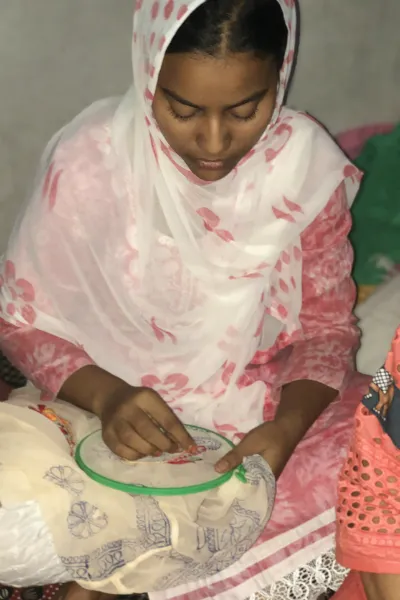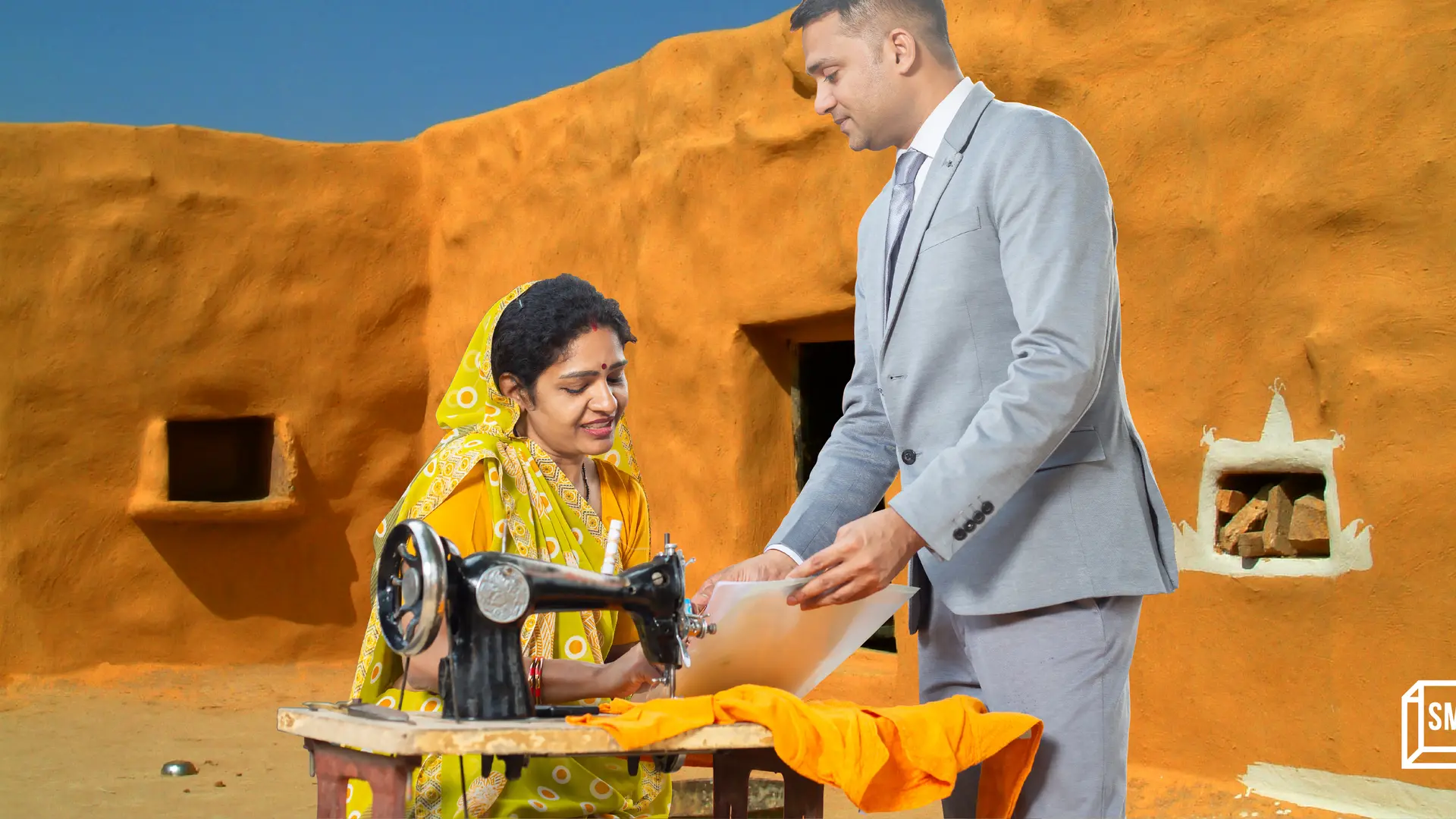From a school dropout to earning Rs 3 Cr, this Lucknow entrepreneur wants to take his chikankari business global
Nitesh Agarwal started Triveni Chikan Arts when he was just 19. He had to quit his schooling after high school because of financial difficulties at home.
Lucknow is known for its world-famous Chikan embroidery, that dates back to the Mughals in the 17th century. It is no surprise then that there are many businesses that are thriving on this ancient craft-form.
One such business is Triveni Chikan Arts started by Nitesh Agarwal. Hailing from a middle-class family, Lucknow-based Nitesh decided to get into the Chikankari business when he was just 19-years-old. He says he studied only till high school and stopped his education because of financial difficulties at home.

Nitesh Agarwal
In order to earn a living, Nitesh established Triveni Chikan Arts in 2011 in Lucknow. The 32-year-old says his aim is to take the 400-year-old Lucknowi Chikankari art form to the connoisseurs of the finest embroidery products throughout the globe.
The company deals in the manufacturing and export of hand embroidered Chikankari kurtas, tunics, sarees, men’s kurtas, women’s suits, lehengas, and other handicrafts and apparels.
Nitesh says the business was started with an initial investment of Rs 13,000 and now has an annual turnover of around Rs 3 crore.
Triveni Chikan Arts currently caters to both domestic and international markets. It exports its products to overseas markets like Africa, New Zealand, Australia, Europe, Singapore, Indonesia, Burma, the US, the UK, and others.
The beginnings
Nitesh had informally started his business in 2005 when he was just 19-years-old and started manufacturing products for some local exporters in Lucknow. He used his credibility to his advantage as everyone in the market knew him and provided him with the dead stock (the stock which does not get sold). Nitesh sold these stocks to foreign chikan exporters in Mumbai and other cities and also to boutiques.
After gaining some experience and arranging for some capital, he registered at DCH Lucknow, where he gained knowledge about the export business.
He says he also got the opportunity to display his products in Singapore, where he met people and made contacts. He adds that the Export Promotion Bureau in Lucknow also helped in imparting knowledge about promoting the business globally and in showcasing the products.
“Today, we have a team of 15 people working with us directly, which includes four of my family members as well.”
Other than this, there are around 200 women and a few men indirectly working with the team.
These artisans do hand-embroidery work, sew handmade laces, stitch buttons, do applique work and katia-zaali work and also specialise in different kinds of embroideries.
“The big industries haven’t reached the rural areas of Uttar Pradesh. The women working with us are making a livelihood by using their skills. It is a small step for them to become self-sufficient,” says Nitesh.
Talking about the speciality of his products, he says, “Our products are unique as they are authentic in nature and are totally handcrafted and made in Lucknow. We produce the most delicate and tastefully done embroidery.”
Major obstacles
Chikankari work is a long and tedious process which requires a lot of patience. According to Nitesh, his products don’t get the desired price when compared to the readymade garments available in the branded stores.
He says if the government helps to advertise the products on behalf of the local artisans, it will help them in creating awareness about the hardships involved in the chikan embroidery process. This can also improve the wages being given to women artisans in the villages.
According to Nitesh, demonetisation has also impacted his export business as many markets in the country were shut down, and the main export hub in Surat was not active for more than two months. Due to this, the demand went down and the foreign buyers did not visit India during Diwali and New Year that year.

A woman embroidery worker at Nitesh's workshop.
The new GST roll-out also had a big impact on the handicraft markets as the prices of the garments increased by 20 percent and became more expensive. The government also levied taxes on the Chikan work business. Nitesh says,
“It is getting difficult for us to survive in the market as there is a huge competition from China.”
He says the state government failed to remove taxes on the Chikan work, which comes under the traditional handicraft, a legacy of the Awadhi culture.
“The government needs to refund instant GST return for exporters or a bill for the exporters should be bought in without any GST. The government should also provide us with enough space to expand and open up new factories. There should be a government recognised quality control department in the city to prevent the supply of low quality and fake Chikan products,” he adds.
Plans ahead
Nitesh plans to export his products to more than 15 countries and also wants to make Triveni Chikan an international brand in the coming years. He says, “We are looking forward to new and innovative ideas to diversify and create something different and are looking for enthusiastic and creative people to help us out.”
The only advice he wants to give new entrepreneurs in the sector is to be honest and stay true to oneself and one’s work and not to underestimate the role of teamwork in the business.
(This story is published in partnership with the MSME Ministry to showcase success stories of SMEs)







1552385108879.png?mode=crop&crop=faces&ar=1%3A1&format=auto&w=1920&q=75)